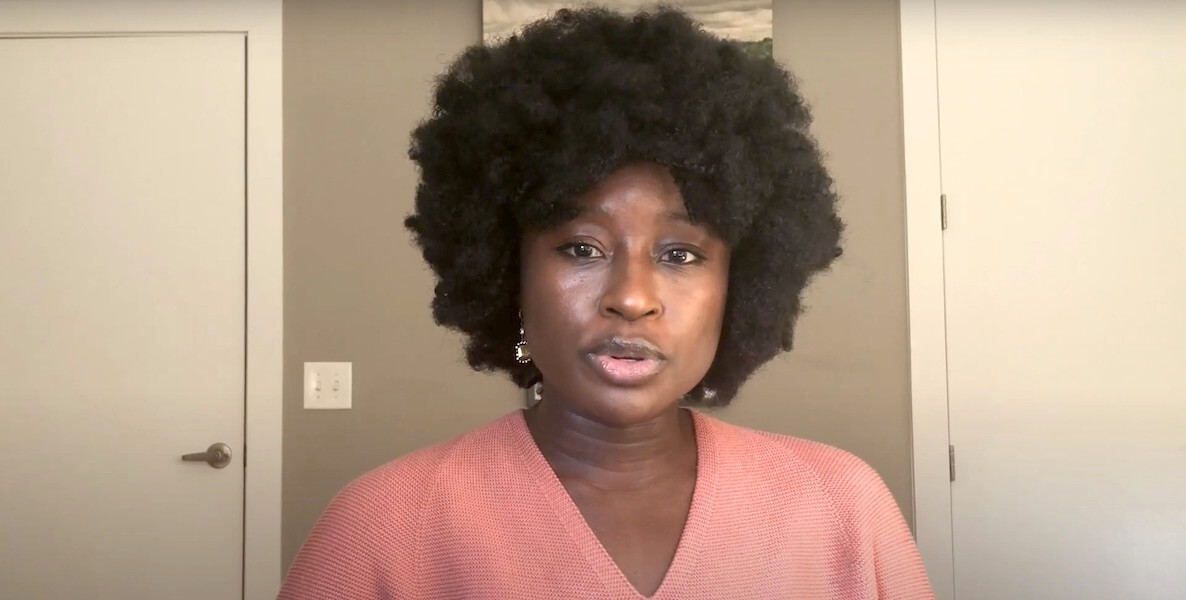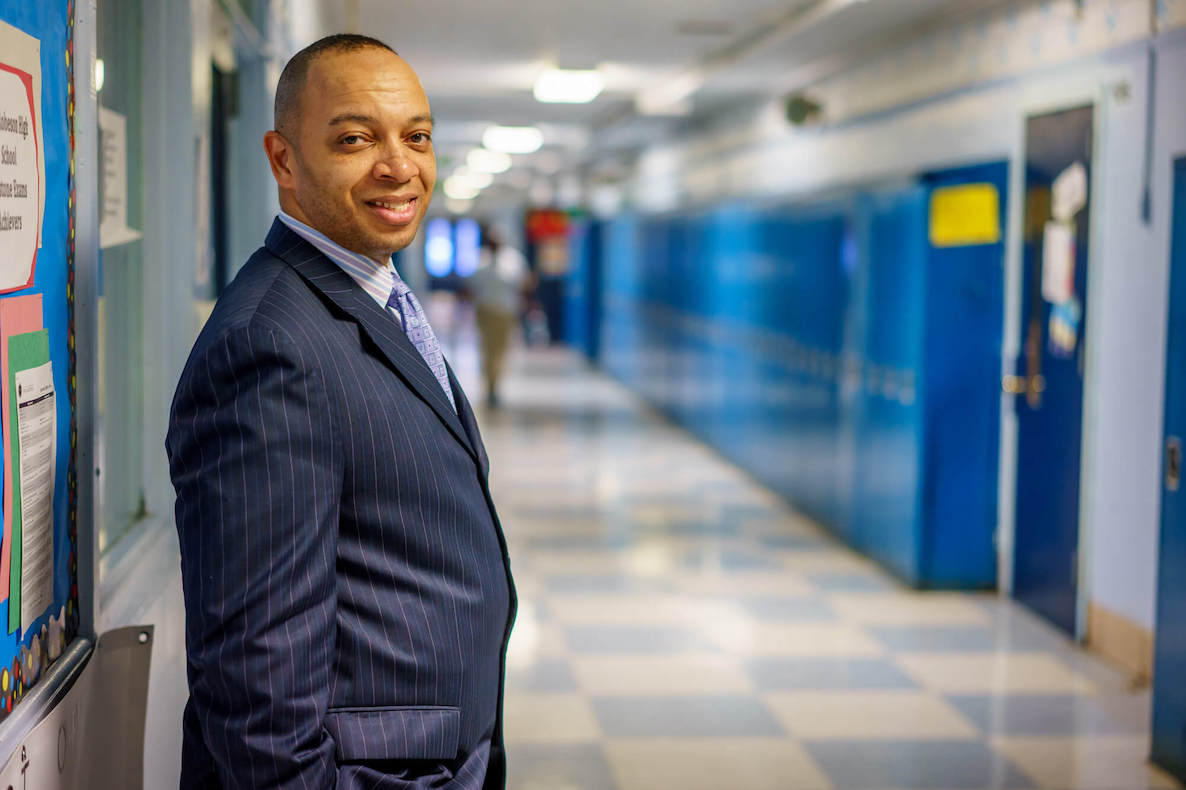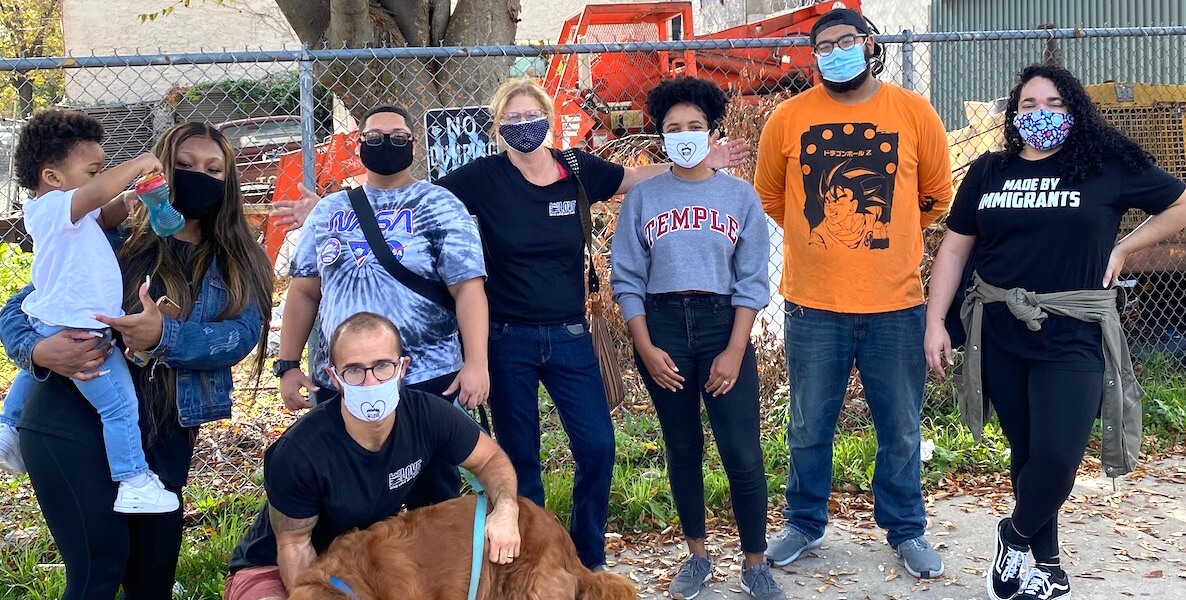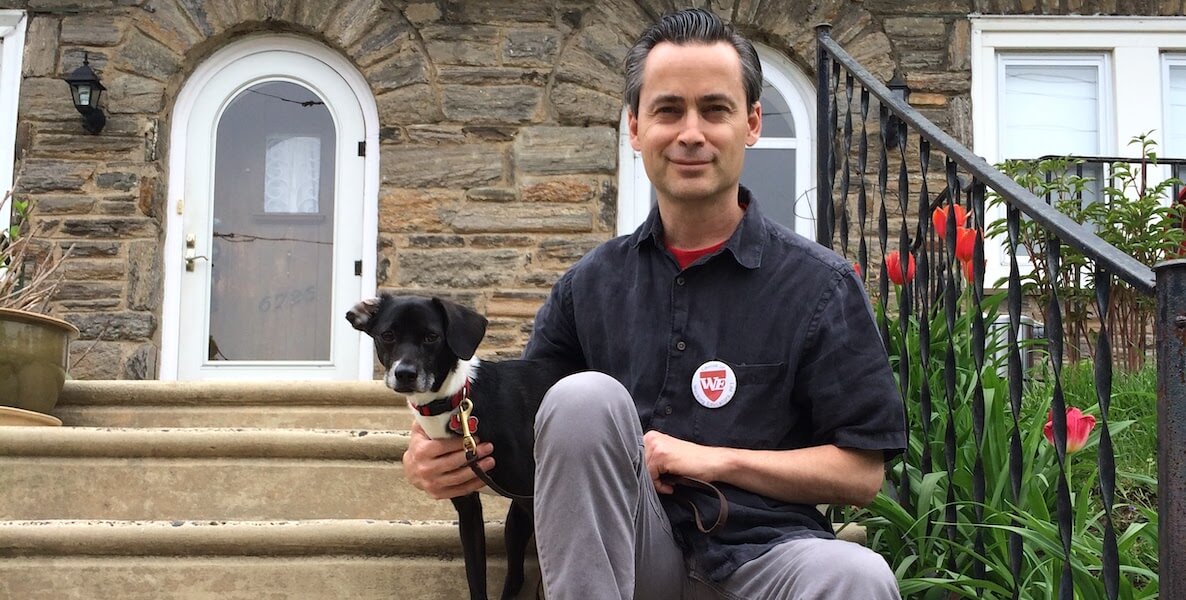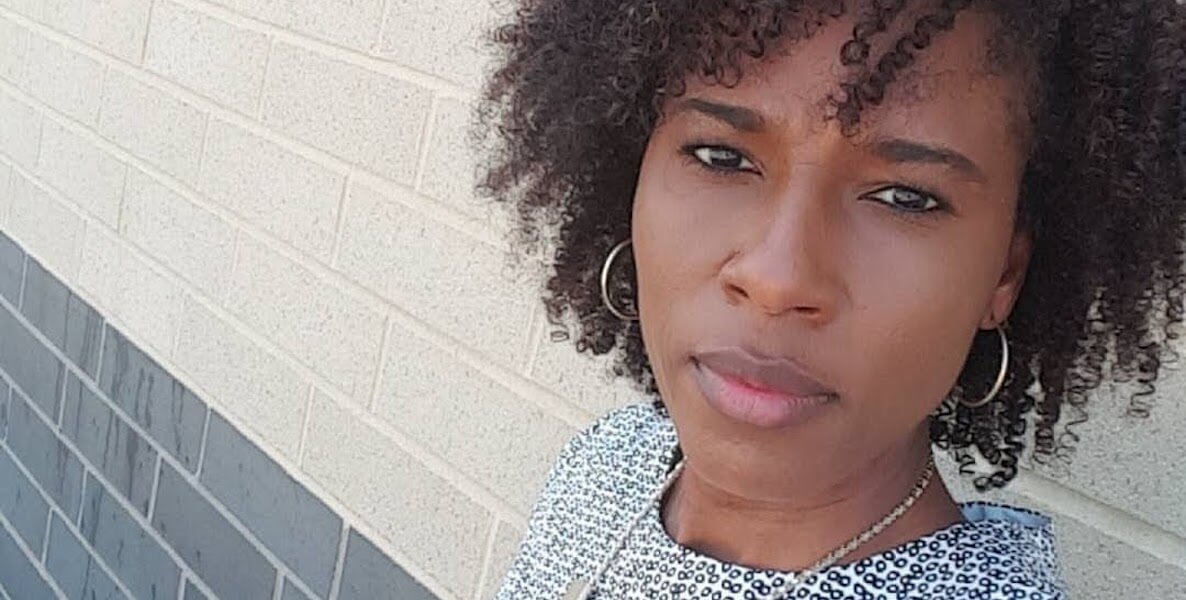Growing up in Tennessee, Shaquita A. Smith relished listening to her grandfather tell her stories about his life. “I loved listening to him talk about World War II, and going to the dance hall with my grandmother,” she says. “Those stories just really brought the past to life for me.”
That ability to travel through time, if only through her imagination, ultimately propelled Smith to become a history teacher — first in Kentucky, then in Howard County, just outside of Baltimore.
But after a decade of being in the classroom, Smith longed to reach more than the 300 or so students she and her co-teacher taught each year. She’d always loved writing curriculum — so when, after her older son had graduated from high school and her younger son was finishing his senior year, a friend told her about an opening within the School District of Philadelphia, she went after it, got it and promptly moved to Philly.
Teaching in Philadelphia
She started out as an academic coach in 2014 before segueing into her role as one of two District Social Studies Curriculum Specialists; since this past August, she has been the sole specialist, overseeing K-12 social studies curriculum for the more than 200,000 students in our public schools.
If you’re not affiliated with a public school in Philly or in most other parts of the country — a student, a parent, an employee — you may not know that Social Studies invariably gets the short end of the budgeting stick, here and elsewhere; unlike Math, ELA (English Language Arts), and Biology, it’s not part of mandatory state testing, so it’s become a lower priority. That’s among the reasons why, for years now, the School District hasn’t even had Social Studies textbooks.
But, says Smith, in a city like Philadelphia, that’s a real opportunity. And that’s not her just shooting some pollyanna-ish spin.
“I have a love/hate relationship with textbooks anyway, because by the time they get into the classroom, they’re kind of out-of-date. And, with the exception of a few women [authors], they’re also generally written by older white men in the middle of America,” who naturally impart their biases into the text. “They make choices about what to create, what to include, what to exclude,” Smith says.
And for Smith’s adopted city, that simply won’t do.
Smith’s vision for Philly students
When she thinks about her vision for social studies education in our city, it comes down to empowerment. “I want students to be empowered to start eradicating poverty and inequities — not just inequalities, but inequities that exist in the education system and the workforce and across the nation,” she says.
At a time when civics education is on the decline — one factor often credited with low voter turnout — Smith believes strongly in not only registering students to vote, but educating them about their vote.
“History is hard. It’s a challenging topic. And it’s easy to just say you don’t want to have a conversation about certain things because it may make people uncomfortable, but it’s necessary to have those conversations so that we don’t repeat the mistakes of our past.”
Prior to the pandemic, she’d been overseeing the planning of a day-long event, akin to a professional development day for teachers, to have taken place at the Convention Center, where students would have had the opportunity to learn about aspects of the election through workshops of their choosing, like “why their vote matters, especially among minority groups like women, Black women, Asian women, and people of color in general.”
The entire event was funded by donations, including the donation of the Convention Center’s space.
Smith relies heavily on the many cultural institutions in Philly, along with their rich pool of primary and secondary sources, to make history not only come alive, but become relevant.
“Everywhere you go, there’s a museum or cultural institution that’s willing to work with the School District to provide resources,” she says. Every year, for example, she recruits students to attend the National Constitution Center’s Liberty Award Ceremony; this year, the program was held virtually, and honored the late Supreme Court Justice Ruth Bader Ginsburg.
A few years ago, she secured a handful of coveted tickets to bring a few students to hear from former First Lady Michelle Obama — an experience that wasn’t just glamorous, but life-changing for students.
![]() One student in particular revealed to Smith that she wanted to apply to one of our city’s art schools, but couldn’t get a ride to the interview; Smith and her fellow chaperone promised on the spot to get the student there for it — they did, and the student was accepted. “She said to us ‘If I don’t go, then I won’t get to possibly do things like Michelle Obama gets to do.’ That made my year.”
One student in particular revealed to Smith that she wanted to apply to one of our city’s art schools, but couldn’t get a ride to the interview; Smith and her fellow chaperone promised on the spot to get the student there for it — they did, and the student was accepted. “She said to us ‘If I don’t go, then I won’t get to possibly do things like Michelle Obama gets to do.’ That made my year.”
She helps organize Future Ready, a program with Wells Fargo and the Chamber of Commerce that pairs 6th graders with local businesses. Businesses visit the schools and support students with career exploration, and the program ends with the 6th graders touring one of the local businesses.
Smith was responsible for developing the career exploration unit for the students, which culminates with the students writing their first resume, so that they can be interviewed by someone at the business they visit.
A connection to Catto
After plans for the Octavius Catto statue to be erected at City Hall were announced, Smith was an instrumental part of the team that oversaw the creation the student-made mural of Catto, and she ensured that students were educated about who Octavius Catto was and what his impact has been, providing professional development for teachers to lead that teaching.
“That’s all part of creating a fabric of real and authentic history,” Smith says. Which leads her to the District’s new anti-racism and social justice curriculum.
“We’re helping teachers understand how to create an anti-racist classroom. How do you have conversations around race and social justice, gender identity, the gender wage gap? We’re now doing that as young as grade four,” she says.
Not everyone is happy about it. Shaquita and her team have critics, and there are families who request further explanation about the details of the anti-racism content. “Once we explain that curriculum is designed to foster culturally responsive and civically active community members, parents are comfortable with allowing their students to participate,” she says.
And so she forges on.
“We don’t want to have that romanticized version of history. History is hard. It’s a challenging topic. And it’s easy to just say you don’t want to have a conversation about certain things because it may make people uncomfortable, but it’s necessary to have those conversations so that we don’t repeat the mistakes of our past.”
She believes Philly can become a model, but that there’s work to be done.
Believing in brotherly love and sisterly affection
![]() “When I moved here and people told me Philly is a city of neighborhoods, I thought, it’s not a city of neighborhoods, it’s a city of segregation: You have the Italians in their neighborhood, the African Americans in their neighborhoods, the Asian Americans in their neighborhoods, and so on,” she says. “If we’re really the City of Brotherly — and Sisterly — Love, we’re going to have to come together in a better way, and one of the ways to do that is to empower our students to get rid of the poverty levels that exist, to get rid of that elitist attitude that if you get a piece of the pie, my piece of the pie gets smaller, and just eliminate as many of those inequalities and inequities as we can.”
“When I moved here and people told me Philly is a city of neighborhoods, I thought, it’s not a city of neighborhoods, it’s a city of segregation: You have the Italians in their neighborhood, the African Americans in their neighborhoods, the Asian Americans in their neighborhoods, and so on,” she says. “If we’re really the City of Brotherly — and Sisterly — Love, we’re going to have to come together in a better way, and one of the ways to do that is to empower our students to get rid of the poverty levels that exist, to get rid of that elitist attitude that if you get a piece of the pie, my piece of the pie gets smaller, and just eliminate as many of those inequalities and inequities as we can.”
She wants Philadelphians to understand that she and her colleagues are here to effect real change. “We are here to serve, we are here to help, and we are here to prove that as times change, we change, and we can create a better community at large through Social Studies education,” she says.
She believes it’s possible, and that students and educators can have fun along the way. At that, she recalls another childhood experience that, early on, influenced her decision to go into education.
“I have three brothers, and my two older brothers and I would often play school with our mom,” she says. “If she wasn’t the teacher, I was, and it was fun—for all of us.”



